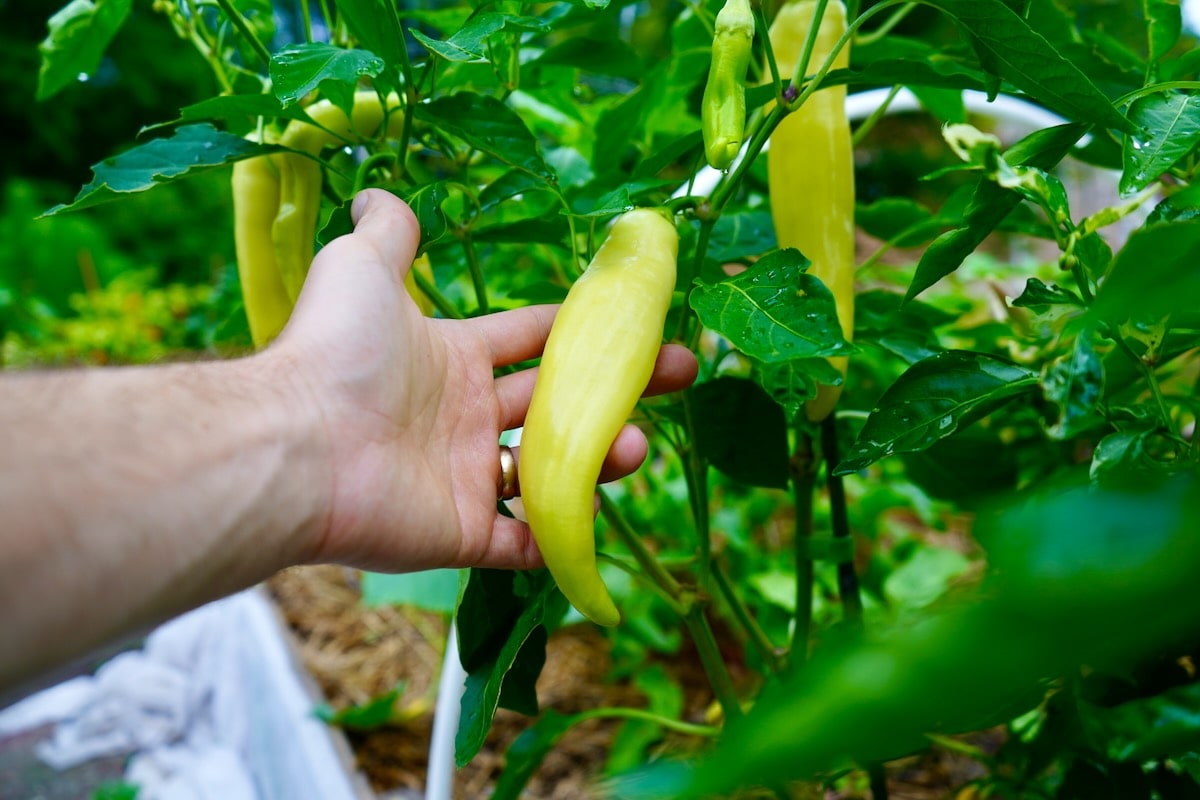How Fertilizers Play a Critical Role in Growing Plentiful and healthy Pepper Crops
Plant foods serve as the backbone of effective pepper farming, supplying a calculated strategy to nourishing the dirt and cultivating optimum plant development. The detailed dancing in between essential nutrients and the pepper plants' physiological processes underscores the pivotal role that fertilizers play in guaranteeing an abundant harvest. From fueling robust root advancement to boosting condition resistance, the influence of plant foods is far-ranging in the cultivation of healthy and worthwhile pepper plants. Remain tuned to reveal the nuanced methods in which fertilizers contribute to the prospering of pepper plants and the sustainable practices that underpin their effectiveness.
Relevance of Nutrient-Rich Plant Foods
The utilization of nutrient-rich fertilizers plays a crucial function in boosting the productivity and high quality of pepper plants in modern agricultural techniques. Nitrogen, potassium, and phosphorus are main nutrients that are critical for the growth and advancement of pepper plants.
Insufficient degrees of these nutrients can lead to stunted growth, decreased yields, and sensitivity to conditions (best fertilizers for peppers). Nutrient-rich fertilizers offer a targeted option to ensure that pepper plants receive the required components for optimum growth and efficiency. Furthermore, these plant foods aid boost soil fertility in time, developing a sustainable setting for long-term pepper farming
Enhancing Plant Development and Development
To enhance plant growth and development in pepper crops, critical application of nutrient-rich fertilizers is necessary. Plant foods play a vital duty in boosting the overall health and wellness and performance of pepper plants by providing them with vital nutrients that may be doing not have in the soil. Potassium, phosphorus, and nitrogen are primary macronutrients required in big amounts by peppers for robust growth. Nitrogen help in leafed eco-friendly development and overall plant vitality, phosphorus sustains root growth and flower formation, while potassium adds to condition resistance and fruit high quality.
In addition to these macronutrients, micronutrients such as iron, zinc, and magnesium are additionally essential for the appropriate performance of numerous plant processes. Iron, for example, is required for chlorophyll manufacturing, which is vital for photosynthesis and general plant development. Zinc plays a crucial duty in enzyme activity and hormone synthesis, impacting plant growth and advancement at a cellular level. Magnesium is necessary for the formation of chlorophyll and general power transfer within the plant.

Boosting Illness Resistance With Plant Foods
By tactically incorporating targeted fertilizers, farmers can boost the condition resistance of pepper crops, guaranteeing optimum plant wellness and efficiency. Plant foods having important nutrients like potassium, phosphorus, and nitrogen play a vital duty in enhancing pepper plants' immune systems, making them much more durable to various diseases.

Taking Full Advantage Of Pepper Return Through Fertilization
Using a well balanced fertilization method is key to attaining optimum pepper yield and ensuring ideal crop performance. By supplying peppers with the best nutrients at the best time, farmers can significantly boost their return potential. Phosphorus, nitrogen, and potassium are vital elements for pepper development, with nitrogen aiding in fallen leave and stem development, phosphorus sustaining root growth and blossom formation, and potassium advertising overall plant wellness.
To make the most of pepper return, it is important to perform soil examinations to figure out existing nutrition levels and determine any shortages that need to be attended to. Based on these outcomes, farmers can establish a tailored fertilizing strategy that satisfies the specific check demands of their pepper crops. Additionally, correct fertilizing strategies such as split applications throughout the growing season can guarantee constant vitamins and mineral schedule for the plants.

Lasting Plant Food Practices for Peppers
In considering sustainable fertilizer methods for peppers, it is important to concentrate on lasting soil health and environmental stewardship along with making the most of crop performance. Lasting plant food methods aim to boost or keep dirt fertility while lessening negative environmental influences. One crucial approach is using organic plant foods such as garden compost, manure, or cover plants, which not just provide crucial nutrients to the peppers yet likewise add to dirt structure and microbial activity. These natural choices aid develop raw material in the soil, enhancing its ability to keep water and nutrients, consequently supporting lasting crop wellness and resilience.
In addition, accuracy agriculture methods, such as dirt testing and targeted nutrient applications, can aid maximize fertilizer usage, ensuring that peppers receive the nutrients they need without excess overflow right into rivers. This not just benefits the environment by minimizing contamination but also conserves expenses for farmers by decreasing waste. By adopting sustainable plant food methods, pepper growers can protect the health and wellness of their plants, dirt, and surrounding ecological communities for future generations.
Final Thought
In conclusion, plant foods are important for growing healthy and abundant pepper crops. best fertilizers for peppers. They give required nutrients for plant development and development, increase disease resistance, and maximize yield. By implementing sustainable plant food practices, farmers can make sure the long-term health and wellness of their pepper plants and add to an extra effective and environmentally-friendly agricultural system
The detailed dance between essential nutrients view website and the pepper plants' physiological procedures emphasizes the pivotal function that plant foods play in guaranteeing a plentiful harvest.To optimize plant growth and advancement in pepper plants, strategic application of nutrient-rich fertilizers is crucial. Fertilizers play a critical role in improving the total health and wellness and performance of pepper plants by providing them with necessary nutrients that may be doing not have in the dirt.By tactically including targeted fertilizers, farmers can reinforce the disease resistance of pepper plants, ensuring optimum plant health and wellness and productivity. Fertilizers containing crucial nutrients like nitrogen, phosphorus, and potassium play an important role in enhancing pepper plants' immune systems, making them much more durable to numerous diseases.